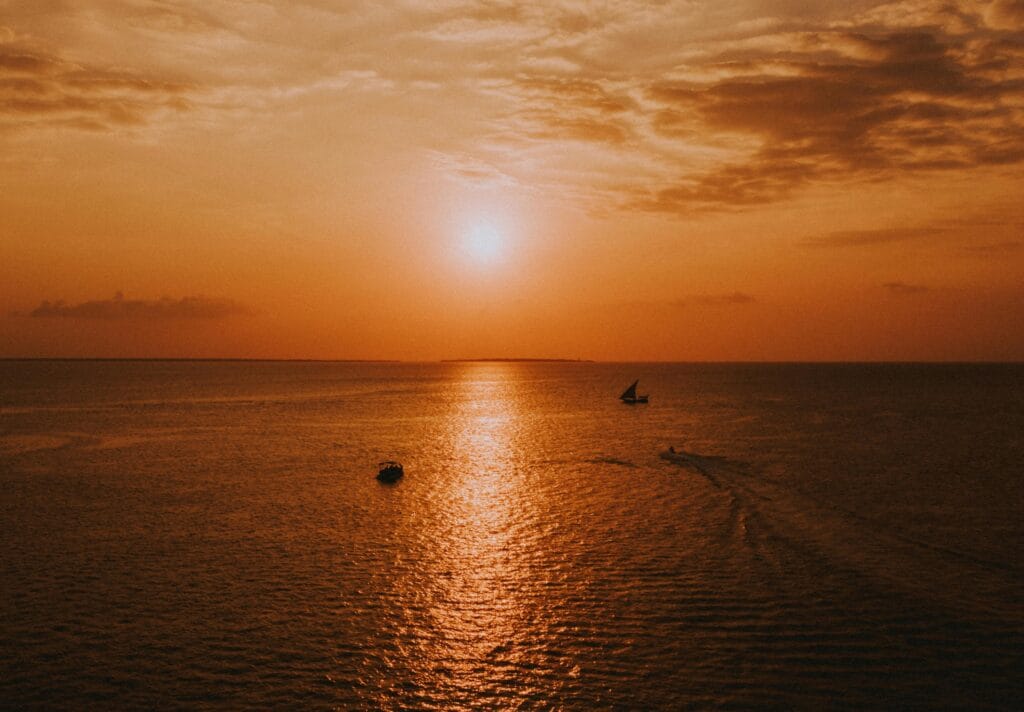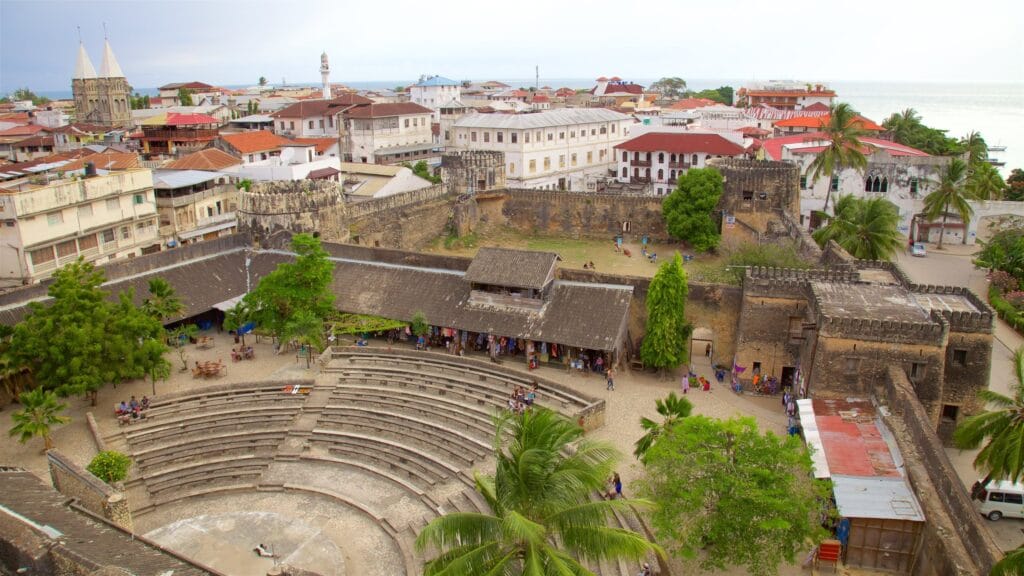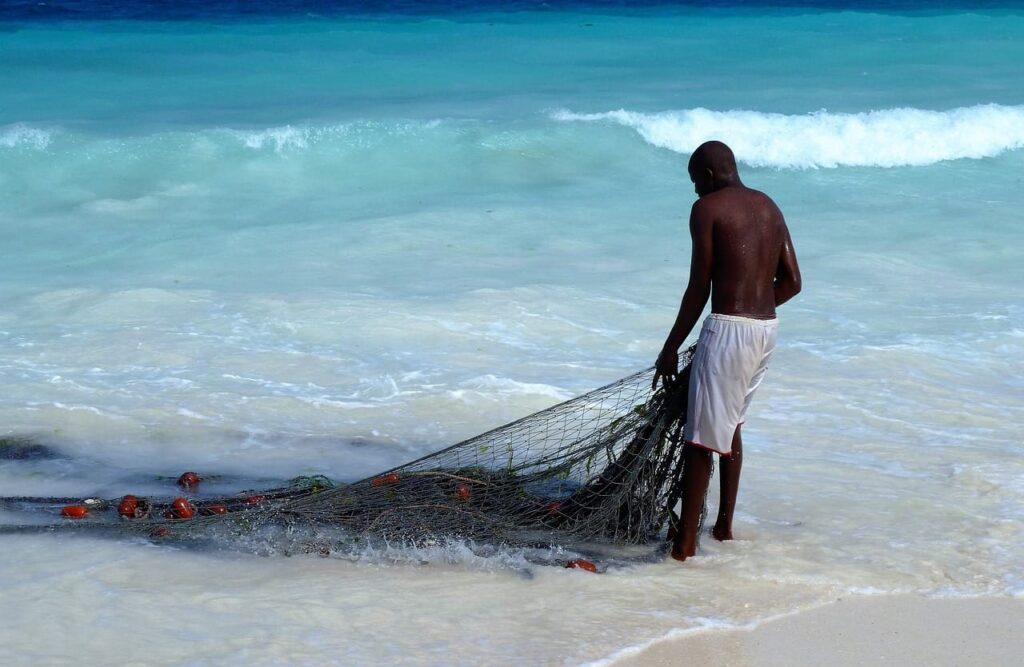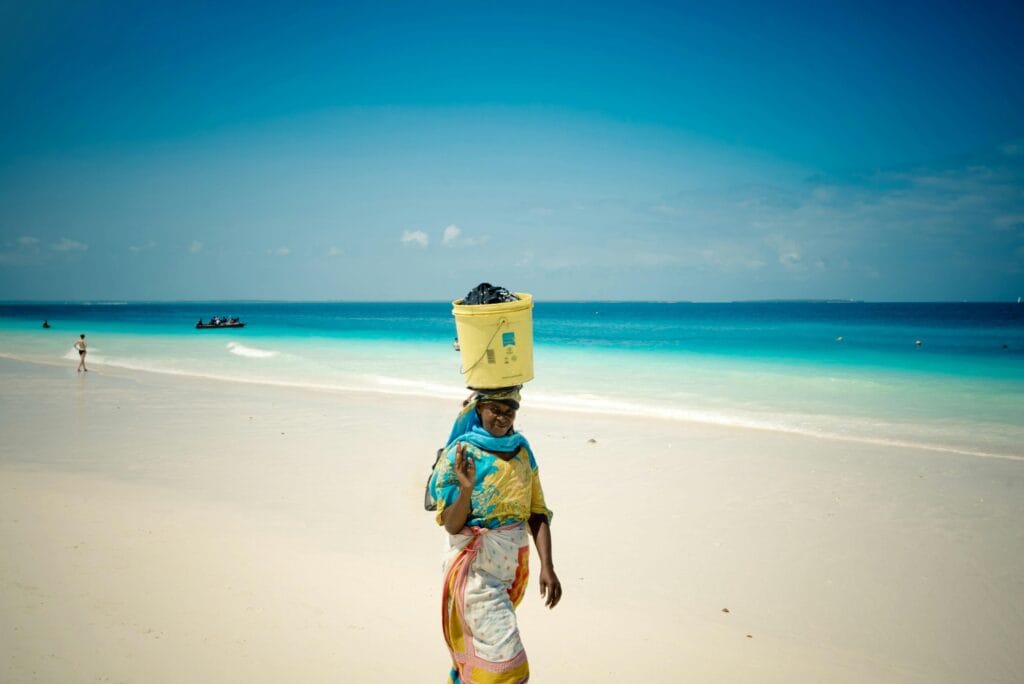The best viewpoints for sunset in Zanzibar
Zanzibar’s sunsets are legendary, with breathtaking views that paint the sky in a palette of orange, pink, and purple as the sun dips below the horizon. Whether you’re on the beach, at a historic site, or exploring the island’s lush countryside, there are plenty of scenic spots where you can catch this magical moment. Here’s a guide to the best viewpoints for a spectacular Zanzibar sunset. 1. Nungwi Beach Why It’s Perfect for Sunset: Located at the northern tip of Zanzibar, Nungwi Beach is known for its pristine white sand and clear, turquoise waters. The beach offers an unobstructed view of the Indian Ocean, making it one of the best spots to enjoy a sunset. Best For: Wide-angle landscape shots, beach photography, and evening strolls along the shore. As the sun sets, the sky lights up in vibrant colors, perfect for capturing dramatic photographs. Tip: Arrive early to find the best spot, as Nungwi is popular among tourists. You can also enjoy dinner at one of the beachfront restaurants, where you can watch the sunset with a refreshing drink in hand. 2. Kendwa Beach Why It’s Perfect for Sunset: Just south of Nungwi, Kendwa Beach is another beautiful spot for watching the sunset. The beach is more relaxed and less crowded, offering a serene atmosphere. The sunset views are magnificent, with the sun sinking into the ocean, creating stunning reflections on the water. Best For: Sunset photography with long exposure shots of the ocean, as well as intimate sunset experiences. Tip: Kendwa is also famous for its full moon parties, so if you’re lucky enough to be in Zanzibar during this event, you’ll have an unforgettable night of dancing under the stars after a perfect sunset. 3. The Rock Restaurant Why It’s Perfect for Sunset: Situated on a rock in the Indian Ocean, The Rock Restaurant is an iconic Zanzibar landmark, offering incredible sunset views. Accessible by foot at low tide or by boat at high tide, the restaurant gives you the chance to enjoy a meal while watching the sun sink into the ocean. Best For: A unique experience with a stunning sunset as the backdrop. It’s a great place for couples or those seeking an unforgettable dining experience with a view. Tip: Make a reservation in advance, especially during sunset hours, as this popular restaurant tends to get busy. 4. Paje Beach Why It’s Perfect for Sunset: Paje Beach on the southeastern coast of Zanzibar offers an idyllic setting for sunset watching. Known for its kite surfing and peaceful atmosphere, Paje is a quieter beach with stunning sunset views over the Indian Ocean. Best For: Sunset photography with reflections in the water, capturing kitesurfers silhouetted against the fiery sky. Tip: If you’re into water sports, you can take part in kite surfing before enjoying the sunset. There are also several beach bars where you can relax and sip on a refreshing drink while watching the sun go down. 5. Mtoni Palace Ruins Why It’s Perfect for Sunset: Mtoni Palace Ruins, located just outside Stone Town, offer a unique sunset view with a historical twist. From the ruins, you can see the sun setting over the Indian Ocean, framed by the palm trees and the remnants of the palace. Best For: Combining history and nature. The ruins create an atmospheric backdrop for sunset photos and are perfect for those interested in Zanzibar’s cultural heritage. Tip: Visit the ruins during the late afternoon to explore the historical site and then enjoy the sunset in this peaceful location. 6. Sunset Dhow Cruise Why It’s Perfect for Sunset: A traditional dhow cruise is one of the most iconic ways to experience Zanzibar’s sunset. These wooden sailing boats, which have been used for centuries by local fishermen, offer an authentic way to watch the sunset while cruising the coastline. Best For: A romantic sunset experience, capturing the colors of the sky reflected on the water, and enjoying the serenity of the sea. Tip: Book a sunset dhow cruise through a local tour provider such as Future African Safari. You can enjoy the sail, complete with snacks and drinks, while taking in the panoramic views. 7. Chwaka Bay Why It’s Perfect for Sunset: Located on the eastern side of the island, Chwaka Bay is a peaceful and quiet spot for a sunset. The bay is surrounded by mangroves, making it a beautiful location for those looking for a tranquil sunset experience. Best For: A more secluded and serene sunset, ideal for nature lovers and those seeking a quieter spot away from the crowds. Tip: Bring along a picnic or snacks and enjoy a quiet evening in this picturesque bay, watching the sun slowly dip below the horizon. 8. Mjimwema Beach Why It’s Perfect for Sunset: Mjimwema Beach, located in the west of Zanzibar, offers a peaceful setting away from the busy tourist spots. The sunsets here are spectacular, with sweeping views over the water and dramatic lighting. Best For: Stunning panoramic shots of the beach, perfect for photographers who want to capture the wide expanse of the coastline during the golden hour. Tip: It’s a less popular beach, so you’ll often find that you can enjoy the sunset in solitude, making it a perfect spot for some quiet reflection. 9. The Ngome Kongwe Fort (Old Fort) Why It’s Perfect for Sunset: The Old Fort, or Ngome Kongwe, is located in the heart of Stone Town, offering panoramic views of the Indian Ocean and the bustling streets of the city. This historic site provides a unique perspective for capturing the sunset against the backdrop of Stone Town’s iconic architecture. Best For: A blend of culture and nature, combining historical sites with breathtaking sunset views. Tip: Visit the fort during the late afternoon to explore the site before making your way to the rooftop for a stunning sunset view. 10. Jambiani Beach Why It’s Perfect for Sunset: Jambiani Beach is one of Zanzibar’s quieter southern beaches, known for its traditional village atmosphere and calm waters.











